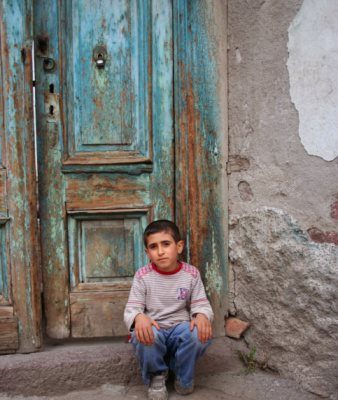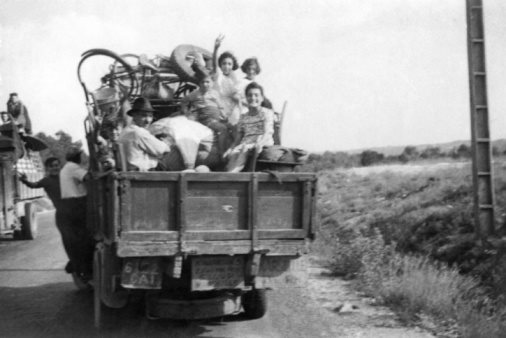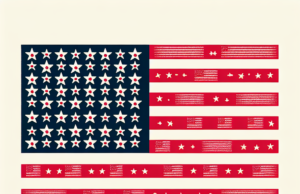The Iraq Implications on American Policy

The Iraq Implications on American Policy
The Iraq War, which started in March 2003 and lasted till December 2011, left a lasting impression on the world and changed the course of American policy on various fronts. Iraq’s strategic location, vast oil reserves, and its association with terrorist funds made it a prime target for American intervention in the early 21st century. But the resulting conflict and its aftermath had direct and indirect implications on American foreign policy, economy, and politics.
Background: The Iraq War and American Policy
The Iraq War was not an abrupt decision that the United States took; it was the result of several decades of geopolitical negotiations, policy changes, and military interventions. The United States had a history of cordial and antagonistic relationships with Iraq since the 1950s. Iraq played a crucial role in the Cold War era, and Saddam Hussein’s rule marked an unstable period in the Middle East. The Gulf War in 1990-91 established the United States as the dominant global power, and it set the tone for America’s evolving foreign policy in the post-Cold War era.
The 9/11 terrorist attacks in 2001 changed the course of American foreign policy and security. The Bush administration made it clear that the threat of terrorism emanated from rogue states with weapons of mass destruction, and Iraq was one of them. The United States accused Saddam Hussein of stockpiling weapons of mass destruction (WMD) and supporting terrorist networks, and in 2002, the Bush administration announced its intention to invade Iraq.
The Iraq War began in March 2003, with the United States leading the coalition forces to oust Saddam Hussein from power. The war lasted eight years, and it caused the loss of over 4,000 American soldiers and countless Iraqi civilians. Saddam’s capture and execution in 2006 marked the end of the war, but the consequences of the conflict and the aftermath had far-reaching implications on American policy.
Implications of the Iraq War on American Policy
The Iraq War had direct and indirect implications on American policy, which spanned across multiple domains such as foreign policy, economy, and domestic politics.
Foreign Policy Implications
The Iraq War marked a significant shift in American foreign policy, which focused primarily on counterterrorism and interventionism. The Bush administration’s doctrine of preemption implied that the United States could take military action against any country that posed a threat to its national security.
The concept of preemption was not new to American foreign policy, but the scale and scope of the Iraq War set the tone for future interventions. The war showcased America’s military might, and it established the United States as a dominant player in the Middle East. But it also exposed America’s limitations and vulnerabilities, as the insurgency in Iraq challenged American military tactics and strategy.
The Iraq War also strained America’s relationship with its allies and other nations, as the war was unpopular among many countries. The United States was also accused of using false intelligence and misleading the international community to justify the invasion of Iraq. The war led to a loss of credibility for the United States in the eyes of the world, and it ended up isolating America from the rest of the global community.
Economic Implications
The Iraq War had significant economic implications for the United States, both in the short term and the long term. The war cost the United States over $2 trillion, making it one of the most expensive wars in American history. The cost of the war was spread across multiple domains such as equipment, logistics, healthcare, and veteran benefits.
The war also had indirect economic implications, such as the opportunity cost of diverting resources from other critical domains such as education, healthcare, and infrastructure. The war also led to a global increase in oil prices, as Iraq was one of the largest oil producers in the world. The rise in oil prices had adverse effects on the American economy, as it led to inflation and reduced the purchasing power of Americans.
The Iraq War also exposed the weaknesses of American economic policies, such as the reliance on debt financing and the lack of fiscal discipline. The war was funded through borrowing, which contributed to the burgeoning national debt. The increased borrowing also led to a budget deficit, which had ripple effects on other sectors such as healthcare and social security.
Domestic Political Implications
The Iraq War had significant political implications for the United States, both in the short term and the long term. The war was initially popular among Americans, as the Bush administration portrayed it as a necessary and patriotic mission. But as the war prolonged, it led to mounting criticism and calls for a withdrawal.
The Iraq War also divided American society along political lines, with Democrats opposing the war and Republicans supporting it. The war also had implications for the 2004 presidential election, as John Kerry tried to capitalize on the growing opposition to the war. The war also had consequences for the 2008 presidential election, as Barack Obama’s anti-war stance helped him win the Democratic nomination.
The Iraq War also had indirect political implications, such as the erosion of civil liberties and the expansion of executive powers. The war led to the passage of laws such as the Patriot Act, which granted the government sweeping powers to fight terrorism. The war also led to debates about the role of the government in protecting civil liberties, as many Americans felt that their privacy rights were being violated.
Updates and Recent Developments
The aftermath of the Iraq War had a lasting impact on American policy, both at home and abroad. The Obama administration tried to distance itself from the Iraq War and shift the focus to other regions such as Asia and Africa. But the instability in the Middle East, coupled with the emergence of new threats such as ISIS, has made it difficult for the United States to disengage from the region.
The Trump administration continued the tradition of interventionism in the Middle East and pursued a policy of maximum pressure against Iran. The killing of Iranian commander Qasem Soleimani in January 2020 marked a significant escalation in tensions between the United States and Iran.
The Biden administration has inherited a Middle East that is still plagued by instability and unresolved conflicts. The Biden administration has pledged to reset America’s foreign policy and focus on addressing domestic issues such as the COVID-19 pandemic and income inequality. But the recent attacks on American troops in Iraq by Iranian-backed militias have once again highlighted the fragility of the region and the challenges that lie ahead.
Conclusion
The Iraq War was a defining moment in American history that had far-reaching implications on various domains such as foreign policy, economy, and politics. The war showcased America’s military might but also exposed its limitations and weaknesses. The economic cost of the war was enormous, and it had indirect effects on other sectors such as healthcare and infrastructure. The war also divided American society along political lines and had consequences for presidential elections.
The Iraq War is a cautionary tale that highlights the complexities and uncertainties of foreign policy. The United States cannot overestimate its military capabilities and underestimate the consequences of its actions. The Iraq War offers several lessons for American policymakers, such as the importance of building strong alliances, investing in diplomacy, and being mindful of the unintended consequences of military interventions.
The goals of the American Refugee Committee are to help displaced persons, whether involved with the Iraqi refugee crisis or any other refugee crisis’s, by helping them to rebuild their lives beyond the short-term fix of refugee camps and temporary removal.
Democratic lawmakers, with help from the American Refugee Committee are seeking to change American policies regarding refugees, particularly due to the fact that over five million Iraqi refugees have been displaced. This agenda includes increasing the amount of funds available set aside to help displaced Iraqi refugees be brought into the United States, especially those that helped the United States win the war between the United States and Iraq.
The Iraqi refugee crisis has not been helped by the fact that the United States has only promised admittance for 12,000 Iraqi refugees per year. Perhaps more disturbing is the fact that only about 500 Iraqi refugees have actually been allowed into the United States. Other countries are accepting even fewer Iraqi refugees but Democrats hope to change American policies soon.
Meanwhile, politicians refuse to come to an agreement about the Iraqi refugee crisis. The United Nations has said that neither Jordan or Syria, the nearby dangerous countries that most Iraqi refugees flee to, cannot afford the costs of hosting the millions of Iraqi refugees who are a result of the Iraqi refugee crisis. The United Nations along with the American Refugee Committee has publicly stated that providing food, clothing and shelter should not be the job of the country that is hosting the displaced Iraqi refuge alone.
The United States had originally hoped that the middle and upper classes of Iraq, the doctors, lawyers and other professionals, would be the Iraqi refugees that would seek solace in the United States and further enhance American society. Instead, the Iraqi refugee crisis has affected all classes in Iraqi culture.















